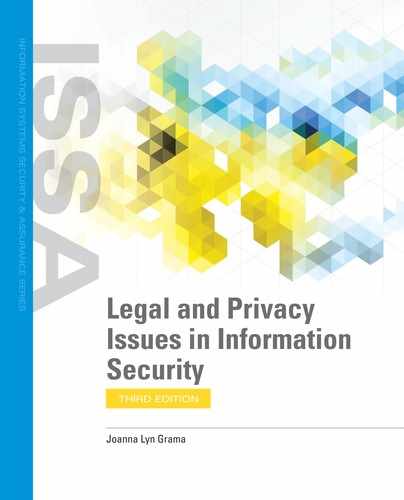Case Studies and Examples
The following case study shows how the concepts discussed in this chapter are used. The case study that follows is a real-world example of contract law issues.
Contract Formation via Email
Parties continue to argue about the enforceability of electronic contracts. California adopted its version of the UETA in 1999. This case began before California enacted its UETA law. Would the case have even reached a U.S. Court of Appeals if California’s UETA law had been in existence when this transaction began?
Stewart Lamle invented a board game called Farook. He obtained two U.S. patents for his game. In May 1996, Lamle began negotiating with toy-giant Mattel to license his game. They signed a preliminary agreement for $25,000. Under this agreement, Lamle agreed not to license the game to anyone else until after June 15, 1997.
On June 11, 1997, the parties met and discussed the terms of a licensing agreement. They agreed to terms regarding the length of the license agreement. They also agreed to the geographic scope of the agreement, the percentage of royalties, and a schedule for payment of royalties. Mattel asked Lamle to draft a formal contract. It promised it would sign an agreement before January 1, 1998.
On June 26, 1997, a Mattel employee sent Lamle an email with the subject line “Farook Deal.” The email repeated the terms agreed to at the earlier meeting. It also stated specifically that Mattel agreed in principle to the agreement and was waiting for the contract. The email concluded with a closing salutation and the employee’s full name. Lamle faxed a draft licensing agreement to Mattel on August 19, 1997.
In August, Mattel displayed Farook at its Pre-Toy Fair. The purpose of the fair was to gauge potential interest in new toys. After the fair, Mattel decided that it was not interested in Farook. It notified Lamle in October.
Lamle sued for breach of contract in October 1999. He also made claims of patent infringement and intentional interference with economic relations.
The District Court for the Central District of California granted summary judgment in favor of Mattel. Summary judgment means that a court has decided that there is not a factual dispute between the parties. Lamle appealed the grant of summary judgment. The Federal Circuit Court of Appeals upheld his appeal and sent the case back to District Court.
The District Court again granted summary judgment for Mattel. The District Court rejected Lamle’s breach of contract claim. It held that no reasonable juror would believe that there was a contract between the parties. It also held that even if there was a contract, it was not enforceable because it was not in writing as required by California’s Statute of Frauds. Lamle appealed again.
![]() NOTE
NOTE
One of the most interesting things about this case is that Lamle represented himself pro se. Pro se means that a person is not represented by a lawyer. Lamle represented himself throughout the whole case pro se, although he was not a lawyer.
The Federal Circuit Court of Appeals reviewed the conduct of the parties. It held that there was a genuine question whether the parties had reached mutual agreement on contractual terms at the June 11 meeting. It held that a trial was needed and evidence should be presented on the issue of mutual assent.
FYI
States have statute of limitations rules. This means that people must bring a lawsuit for injuries that they have incurred within a certain period of time. In California, lawsuits for breach of oral contracts must be filed within 2 years of the date of the breach. The statute of limitations for written contracts is 4 years. Lamle sued Mattel exactly 2 years from the date that Mattel notified him that it was not interested in Farook. Why did Lamle sue at the 2-year mark?
The court also discussed California’s Statute of Frauds. In reviewing the June 26 email from the Mattel employee, it held that the name of the Mattel employee at the end of the email was enough to overcome the signed writing requirements of the Statute of Frauds. It said that its ruling was consistent with other California laws that state that a typewritten name is considered a signature.
The Court also noted that if the email from the Mattel employee had been sent after January 1, 2000, there would be no question at all whether the email constituted a signed writing for Statute of Frauds purposes. California’s version of the UETA went into effect at that time.
The Federal Circuit Court of Appeals ruling gave Lamle the right to have a jury trial on his breach of contract claim. Lamle and Mattel eventually settled their claims against one another.
You can read the court’s opinion at http://scholar.google.com/scholar_case?case=5607112815760928119.
